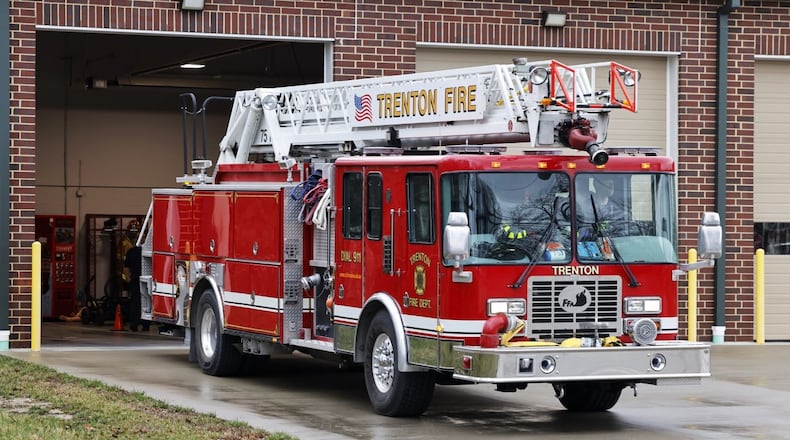Yater said the department aimed to have four staff members on duty at a time, 24/7 throughout 2022. However, 53% of the time, there was no supervisor on duty, 46% of the time the department’s shifts weren’t fully staffed, and 10% of the time there was no paramedic on site.
Currently, the only funding source for the department is a 4.5 mill levy passed in 2012, which, due to the naturally diminishing efficacy of levies over time, has an effective rate of only 3.45 mills today. No fire levies have been on the ballot since.
Yater told the council a supplemental fire levy is “necessary to ensure that the Trenton Fire Department can provide the same level of service moving forward.”
“I’m not a professor, I don’t have any PhDs or anything to predict the future, but I can say, as an old man with 52 years of experience in the fire service, if nothing is done in the next two years to help this department, the bottom will fall out, and we will not recover,” Yater said.
Yater said staffing issues are an issue for fire departments nationwide, but are particularly acute in departments like Trenton that rely on part-time employees. In general, Yater found that entering the fire or EMT industry is of waning interest to young folks, and, in order to entice them, departments need to offer competitive pay and benefits. Physical demands of the job, inherent safety risks and the expense of education, certification and recertification all act as hurdles to recruitment.
Trenton City Manager Marcos Nichols told the Journal-News that the city’s fire department has been slowly transitioning from a volunteer fire department to a part-time department. Dayton Daily News reported that Yater became the first paid chief in department history when he took the role in 2011.
Back then, the department was made up of roughly 35 volunteers, and it made an estimated 1,300 runs between EMS and fire services. About a decade later, Yater said the Trenton Fire Department responded to 1,725 calls in 2022, about 15% more than it had received in 2021 and an estimated 32.7% increase since Yater took charge.
In comparison, Liberty Twp. Fire Department answered 3,600 calls in 2022 with at least 18 staff members on the clock at all times.
“We respond to half that with two, three, four employees,” Yater said.
There are 39 part-time employees and no full-timers at Trenton Fire Department, which is tasked with serving over 13,000 residents. Yater noted that most of those part-time employees only work at the department for supplemental income, and supervisors lack the authoritative power over part-time employees and cannot mandate their presence when the department is short staffed.
Yater said, ideally, the department will need to move forward with five employees per shift, with either two or three of those employees being full-timers, a marked shift from how the department currently operates.
Finance Director Matthew Mesisklis presented the council with a 6.5 mill and 4.75 mill levy options to fund those employment models. For a $200,000 home in Trenton, those prospective levies would raise the tax bill about $512 and $374 annually, respectively.
Nichols said city council members will digest the presentation and deliberate on whether or not a levy should be put on the ballot this November.
“I know that council has a big decision to make,” Yater said, “It will be a tough thing. But we have to move forward. We have to move forward.”
About the Author

